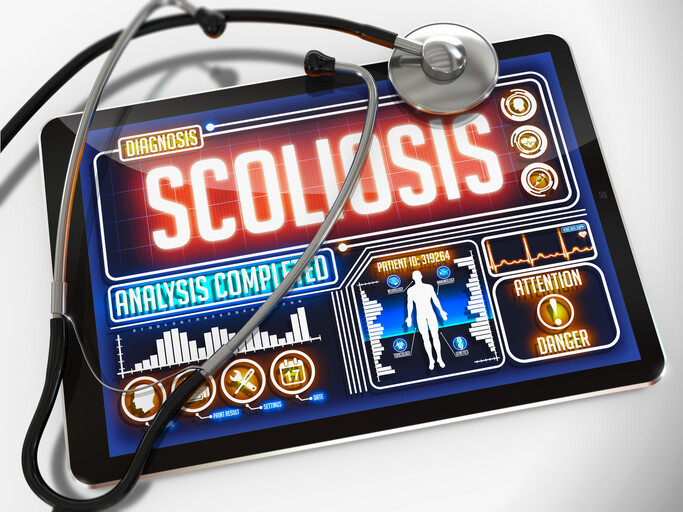The National Institutes of Health’s (NIH)-National Institute of Arthritis and Musculoskeletal and Skin Diseases, defines scoliosis as “a disorder in which there is a sideways curve of the spine.” According to WebMD, most scoliosis cases are idiopathic, meaning, there is no known cause.
However, there are some kinds of scoliosis for which the causes are known. These types of scoliosis are either structural or non-structural. Non-structural scoliosis occurs when the spine works normally but appears to be curved. This can be caused by inflammation or muscle spasms and goes away when the issue is treated. Structural scoliosis is irreversible and is marked by a rigid spine. This can be caused by infections, tumors, birth defects, genetic conditions like Down syndrome or Marfan syndrome, cerebral palsy, or muscular dystrophy.
The Mayo Clinic explains that idiopathic scoliosis tends to manifest signs and symptoms, more in girls than boys, just prior to puberty. Even though family history is a risk factor for scoliosis, most people who develop idiopathic scoliosis, do not have a family history of the disease. The Mayo Clinic lists some of the signs and symptoms of scoliosis as:
- Uneven Shoulders.
- One shoulder blade appearing to be more prominent than the other.
- Uneven waist.
- One hip higher than the other.
The American Association of Neurological Surgeons states that a diagnosis of scoliosis is “confirmed through a physical examination, an ex-ray, spinal radiograph, CT scan or MRI.” Treatment options may include bracing or surgery. However, in most cases, if the curvature of the spine is mild, no treatment is necessary.
To discuss your treatment options with a healthcare professional and to schedule an annual physical at any of our convenient Primary Medical Care Center community clinics, you may visit our website at www.primarymed.com, or call (305)751-1500 for our Miami-Dade clinic, or (954)289-0000 for our Broward clinic.
Source: https://www.aans.org/Patients/Neurological-Conditions-and-Treatments/Scoliosis
https://www.mayoclinic.org/diseases-conditions/scoliosis/symptoms-causes/syc-20350716
https://www.webmd.com/back-pain/causes-scoliosishttps://www.niams.nih.gov/health-topics/scoliosis
